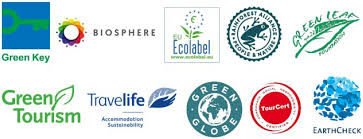Introduction to Business Reputation
Business reputation refers to the public perception of a company based on its actions, values, and overall image. In today’s highly competitive marketplace, possessing a solid reputation is paramount for organizations seeking to thrive. Reputation serves as a critical business asset that can influence various aspects of a company’s operations, including consumer trust, investor relations, and overall market competitiveness.
In essence, a strong reputation translates into consumer confidence, encouraging potential customers to engage with the business rather than its competitors. Studies indicate that consumers are likely to choose brands they perceive as credible and ethical. Therefore, organizations must actively manage their reputation to foster positive consumer relationships and encourage loyalty. Additionally, companies with robust reputations tend to experience fewer obstacles when launching new products or entering new markets, as existing customers can act as brand advocates, promoting the business through word-of-mouth and social proof.
Moreover, reputation significantly affects investor relations. Investors are more inclined to invest in companies that have an admirable standing in the market, as it signals stability, leadership, and long-term viability. A company with a poor reputation, on the other hand, may struggle to attract investment and may even face challenges in securing financing options.
In the digital age, maintaining a good reputation is more crucial than ever. The rapid spread of information through online platforms means that both positive and negative feedback can circulate swiftly. Businesses must be vigilant in monitoring their online presence and managing public relations effectively. Engaging with customers and responding to feedback on platforms such as social media can enhance a company’s reputation, demonstrating its commitment to transparency and accountability.
Ultimately, a solid business reputation is essential for ensuring long-term success, making reputation management a critical component of an organization’s overall strategy.
The Role of Certifications in Business
Certifications play a crucial role in enhancing a business’s reputation and credibility. They serve as official indicators of a company’s commitment to maintaining certain standards, whether in quality management, environmental practices, or industry-specific protocols. For instance, certifications such as ISO (International Organization for Standardization) are globally recognized benchmarks that establish a framework for quality assurance. Achieving ISO certification indicates that a company adheres to internationally accepted processes, thereby fostering trust among customers and clients.
Environmental certifications, like ISO 14001, demonstrate a company’s dedication to minimizing its environmental impact. These certifications require businesses to implement effective management systems focused on environmental performance, which in turn often leads to sustainable practices. By obtaining such certifications, businesses not only comply with legal requirements but also position themselves as responsible corporate citizens committed to sustainability and eco-friendliness.
Moreover, certifications enhance transparency and promote accountability. They assure customers that the company’s processes have been rigorously vetted and adhere to high standards. As a result, consumers are more likely to trust a brand that has tangible proof of its dedication to quality and sustainability. This trust can translate into increased customer loyalty, potentially leading to higher sales and a stronger market presence.
Furthermore, certifications can provide a competitive edge, distinguishing a business from its rivals. In markets saturated with similar products or services, certification can serve as a unique selling proposition, attracting customers who value quality and sustainability. This differentiation not only bolsters a company’s reputation but also opens up new opportunities, such as partnerships with other certified organizations and access to grants or subsidies aimed at promoting responsible business practices.
Understanding Environmental Standards
Environmental standards refer to legally established guidelines that delineate how businesses should operate to minimize their impact on the natural environment. These standards can be international, national, or local in scope and are designed to promote sustainability across various sectors. Compliance with these regulations is critical for businesses as they not only ensure adherence to legal requirements but also contribute to broader environmental conservation efforts.
The significance of these standards extends beyond mere compliance; they serve as a benchmark for sustainable practices that help organizations reduce waste, lower emissions, and utilize resources more efficiently. For example, standards such as ISO 14001 provide a framework for organizations to establish an effective environmental management system. By following such frameworks, businesses demonstrate their commitment to sustainability, which in turn enhances their reputation among stakeholders, customers, and the community at large.
Furthermore, businesses that actively pursue certification in accordance with environmental standards often exhibit markedly improved operational efficiencies. These efficiencies can lead to cost savings and improved resource management, positioning organizations advantageously within increasingly eco-conscious markets. Today’s consumers are more informed and take into consideration a company’s environmental practices before making purchasing decisions. Thus, aligning with environmental standards not only reflects a commitment to responsible stewardship but also helps to foster customer loyalty and attract new market segments.
Ultimately, organizations that prioritize environmental standards gain a competitive edge. They not only help protect the planet but also resonate positively with clients and partners, establishing a corporate identity that values sustainability. Through responsible business practices aligned with environmental standards, companies can significantly enhance their overall reputation and long-term viability in an ever-evolving marketplace.
Benefits of Certification for Businesses
In today’s competitive business landscape, obtaining certifications has become an essential strategy for organizations striving to enhance their reputation while demonstrating a commitment to quality and sustainability. One of the foremost benefits of certification is the improvement in operational efficiency. By adhering to established standards, businesses can streamline their processes, reduce waste, and optimize resource utilization. For instance, a manufacturing company that secures ISO 9001 certification often experiences a reduction in production costs due to better quality control and reduced errors in workflows.
Moreover, receiving certification can significantly lower the risk associated with business operations. Certified businesses are generally perceived as more reliable by stakeholders, including investors and clients. This perception can be crucial during times of crisis or economic fluctuations. For example, companies certified under the ISO 14001 standard, which focuses on environmental management, have been able to mitigate regulatory risks effectively by complying with environmental laws and regulations, ultimately protecting their reputation in the marketplace.
Enhanced customer loyalty is another key advantage of obtaining certifications. In an era where consumers are increasingly conscientious about the practices of the brands they support, certifications serve as valuable proof of a company’s commitment to ethical values and sustainability. For example, a food company that earns organic certification often sees a boost in sales as consumers are more inclined to purchase products from brands that align with their values. Such certifications not only attract new customers but also foster long-term loyalty among existing ones, contributing to a positive brand image and increasing market share.
Case studies illustrate these benefits further; numerous businesses across various sectors have reported significant enhancements in reputation and market positioning after securing relevant certifications. Through these actions, they demonstrate responsibility and commitment to excellence, thereby creating a more favorable perception among consumers and stakeholders alike.
Consumer Expectations in Today’s Market
In contemporary marketplaces, consumer behavior is evolving at an unprecedented rate, particularly concerning corporate social responsibility (CSR) and environmental stewardship. Today’s consumers are not merely focused on product quality and price; they are increasingly seeking brands that demonstrate a strong commitment to ethical practices and sustainable development. This shift in consumer expectations is significantly reshaping how businesses operate, compelling them to adopt measures that enhance their public image and overall reputation.
Research indicates that a significant portion of consumers prefer brands that prioritize sustainability. This preference is reflected in various consumer demographics, with younger generations particularly vocal about their environmental concerns. Millennials and Generation Z, for instance, actively seek out companies that practice ethical sourcing, reduce waste, and engage in eco-friendly initiatives. As a result, brands that align their operations with environmental standards tend to resonate more favorably with these socially conscious consumers.
Moreover, as awareness regarding climate change and ecological degradation grows, consumers are empowering themselves with information and tools to make informed purchasing decisions. This trend translates into a market where positive environmental stewardship becomes a cornerstone of brand loyalty. Businesses that demonstrate transparency regarding their sustainability efforts and environmental impact are seen as more trustworthy. Consequently, aligning with recognized certification programs and adhering to strict environmental standards not only enhances a company’s reputation but also increases customer satisfaction and loyalty.
In this competitive landscape, businesses must recognize that consumer loyalty is increasingly linked to ethical and sustainable practices. An ongoing commitment to environmental standards can serve as a differentiator in crowded markets, leading to increased market share and enhanced business reputation. Therefore, understanding and adapting to these evolving consumer expectations is essential for organizations aiming to thrive in today’s conscientious consumer environment.
Creating a Competitive Edge through Standards
In today’s rapidly evolving market landscape, businesses must adapt to changing consumer expectations and regulatory requirements, and one effective approach to accomplishing this is through the adoption of environmental standards and certifications. By committing to these standards, companies not only enhance their operational practices but also significantly improve their competitive edge. This commitment showcases a brand’s dedication to sustainability, fostering customer loyalty and appealing to environmentally conscious consumers.
One illustrative example of this approach can be observed in the case of Unilever, which has integrated sustainable practices across its supply chain. The company’s Sustainable Living Plan aims to reduce its environmental footprint while increasing its positive social impact. As a result, Unilever has seen significant growth in its sustainable product lines, demonstrating that environmental certifications not only promote responsibility but can also contribute to the bottom line. The brand’s engagement in sustainability initiatives has allowed it to attract a discerning customer base that prioritizes responsible consumption.
Another successful case is that of Patagonia, an outdoor clothing company renowned for its environmental consciousness. By committing to Fair Trade certifications and using recycled materials, Patagonia has differentiated itself in a saturated apparel market. This commitment amplifies its brand story and appeals to eco-friendly consumers, allowing Patagonia to cultivate a loyal following and sustain market leadership. The conscious approach to environmental standards exemplifies how responsible practices can promote brand visibility and competitive differentiation.
Furthermore, businesses that actively promote their adherence to environmental standards can also benefit from improved operational efficiencies. By minimizing waste and optimizing resource use, companies can reduce costs and enhance profitability. The strategic implementation of environmental certifications, therefore, proves to be a dual benefit: enhancing business reputation while fostering a competitive advantage in an increasingly sustainable marketplace.
Long-term Value of Maintaining Standards
In the competitive landscape of modern business, adherence to environmental standards and obtaining relevant certifications signify a commitment to sustainability that resonates with consumers. The long-term value of maintaining these standards is multifaceted, impacting customer retention, brand loyalty, and ultimately, profitability. Businesses that actively demonstrate their dedication to responsible practices through certifications are often perceived as industry leaders. This perception can solidify a strong brand identity, allowing companies to distinguish themselves from competitors and establish a loyal customer base.
One of the foremost advantages of maintaining these environmental standards is the impact on customer retention. Research indicates that consumers are increasingly inclined to support brands that align with their values, particularly in regard to sustainability and environmental responsibility. When companies adhere to established environmental standards, they signal to their customers that they prioritize the health of the planet, thus fostering trust. This trust can translate into repeat business, as consumers are more likely to stay loyal to a brand that shares their commitment to eco-friendliness.
Moreover, enhanced brand loyalty often leads to increased profitability. A reputable brand that is recognized for its adherence to environmental standards can command a premium price for its products or services. Customers are generally willing to pay more for products that they perceive as ethically produced and environmentally friendly. This willingness not only increases revenue but also enhances the overall profitability of a business. As brand loyalty strengthens, companies can also benefit from positive word-of-mouth marketing, further expanding their customer base without incurring substantial advertising costs.
In conclusion, the long-term value of maintaining environmental standards and earning certifications is evident through enhanced customer retention, solidified brand loyalty, and improved profitability. Companies committed to these practices are well-positioned to thrive in an ever-evolving market landscape.
Challenges in Achieving Certifications and Standards
Obtaining certifications and adhering to environmental standards can provide significant benefits for businesses, yet the journey is often fraught with challenges and potential barriers. One of the primary concerns is the financial investment required to achieve and maintain these certifications. The costs associated with certification processes, which may include application fees, assessment fees, and ongoing compliance costs, can be substantial, particularly for small and medium-sized enterprises (SMEs). This financial burden may deter businesses from pursuing certification despite the long-term advantages it may offer.
Another significant challenge lies in the lack of knowledge and understanding regarding the certification process itself. Many companies may not have the resources or expertise needed to navigate the complexities involved in these procedures. This lack of knowledge can result in missteps during the application process or failure to comply with ongoing standards, leading to further costs and potential reputational damage. Consequently, businesses are encouraged to invest in training and seek assistance from consultants or organizations specializing in certification processes, thus reducing the knowledge gap in their teams.
Furthermore, operational changes may also pose hurdles. Achieving certification often demands shifts in existing practices and procedures. These changes can meet with resistance from employees who may be accustomed to traditional methods, leading to friction within the workforce. To mitigate this, effective communication and engagement strategies should be implemented. By fostering a culture of participation and emphasizing the benefits of adherence to environmental standards, businesses can enhance employee buy-in and facilitate smoother transitions.
In summary, while challenges such as costs, knowledge gaps, and operational changes are prevalent, businesses can overcome these obstacles through strategic planning, effective communication, and leveraging external expertise, ultimately leading to the successful achievement of certifications and adherence to environmental standards.
Conclusion: The Future of Business Reputation and Environmental Responsibility
In light of the discussions throughout this blog post, it is evident that certifications and adherence to environmental standards play a pivotal role in shaping a business’s reputation. In today’s increasingly eco-conscious market, companies that prioritize environmental responsibility can gain a significant competitive edge. Achieving certification in sustainability not only signals a commitment to reducing environmental impact but also aligns a business with consumer values that increasingly favor responsible practices.
As environmental regulations continue to evolve, businesses must stay ahead of the curve by adopting measures that demonstrate a proactive approach to sustainability. Those that might resist change may ultimately find themselves at a disadvantage as both consumers and governments become more stringent in their environmental expectations. Investing in certifications can be seen as a strategic move, paving the way for enhanced credibility and trust from stakeholders.
Moreover, with transparency becoming a crucial aspect of corporate governance, organizations that are open about their certifications and environmentally friendly initiatives can foster loyalty among their customers. As consumers become more informed, the demand for ethical products and services will only continue to rise, making it imperative for businesses to adapt accordingly. By integrating environmental responsibility into the core of their operational framework, companies can ensure that they not only enhance their reputation but also contribute positively to the planet.
In conclusion, the future of business reputation is closely intertwined with environmental responsibility. Companies that acknowledge this relationship and are willing to pursue relevant certifications will likely experience sustained success and a robust reputation in the evolving marketplace. By prioritizing sustainability, businesses are not only protecting their brand but also investing in a future that benefits both the organization and society at large.
How useful was this post?
Click on a star to rate it!
Average rating 0 / 5. Vote count: 0
No votes so far! Be the first to rate this post.









